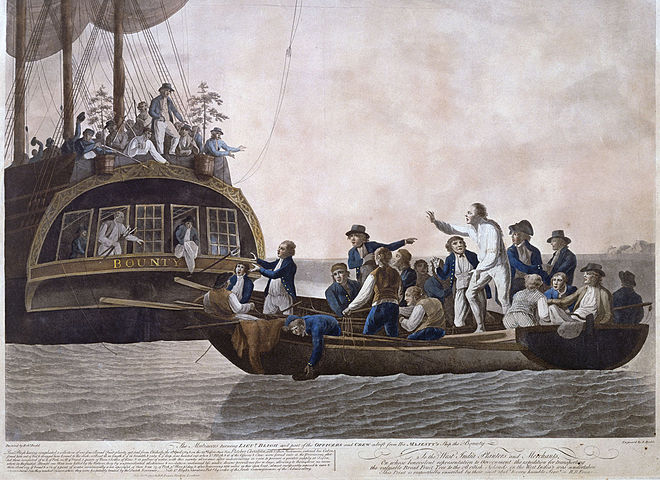Though often portrayed as a tyrant who drive his crew to mutiny, a reexamination of Bligh's manner of command arguably suggests that far from being to hard on his crew, he was too lenient and failed to curd their excesses during the many months that they were in Tahiti. One example of his failure to exercise some modicum of control related to the use of ships nails as barter items. The iron nails were much prized by the native, who could fashion them into many different utensils, but were also necessary for keeping the ship in repair. Eventually, the crew pilfered all of the fresh nails, and even began prying nails from the Bounty's woodwork to trade for food, drink, and female companionship.
After Bligh reached England in April 1790, the Admiralty dispatched HMS Pandora to apprehend the mutineers. Fourteen were captured in Tahiti and imprisoned on board Pandora, which then searched without success for Christian's party that had hidden on Pitcairn Island. After turning back towards England, Pandora ran aground on the Great Barrier Reef, with the loss of 31 crew and four prisoners from Bounty. The 10 surviving detainees reached England in June 1792 and were court martialed; four were acquitted, three were pardoned and three were hanged.
Christian's group remained undiscovered on Pitcairn until 1808, by which time only one mutineer, John Adams, remained alive. Almost all of his fellow mutineers, including Christian, had been killed, either by each other or by their Polynesian companions. No action was taken against Adams; descendants of the mutineers and their Tahitian captives live on Pitcairn into the 21st century.
Bligh's logbooks documenting the mutiny were officially inscribed on the UNESCO Australian Memory of the World register on 26 February 2021

 RSS Feed
RSS Feed